农历七月十五,也就是中元节。在中国古代,中元节可是一个十分重要的节日,但如今却鲜有人知晓这个节日真正的意义。其实这不难理解,中元节主要是为了祭奠故人,而现如今的年轻人则更看重那些浪漫或是“剁手”的新潮玩儿法,对于这样的传统节日却是越来越淡忘了。
Today is the lunar July which is known as the Hungry Ghost Festival. In ancient China, this festival is a very important holiday, but now few people know the real meaning of it which is not hard to understand that the Hungry Ghost Gestival is mainly for memorizing the departed, while today, young people are more interested in those romantic or splurging ways, so the traditional festival is being forgotten.


中元节,源自佛教典籍里的“盂兰盆节”,被认为是一年中,阴气最重的“鬼节”。中国人有慎终追远,视死如生的传统观念,所以在大多数人看来,“鬼”是生人逝去后,存在的另一种状态,在生命尽头的寂静与暗涌中继续影响着人间。
The Hungry Ghost Festival derived from the “Obon Festival” in the buddhist classics, which is considered to be extremely Yin ( negative, dark, and feminine). The Chinese are carefully attend to the funeral rites of parents and follow them when gone with due sacrifices, so in most people’s mind the “ghost” is another state when people die, influencing the earthly order in the end of life’s chaos.
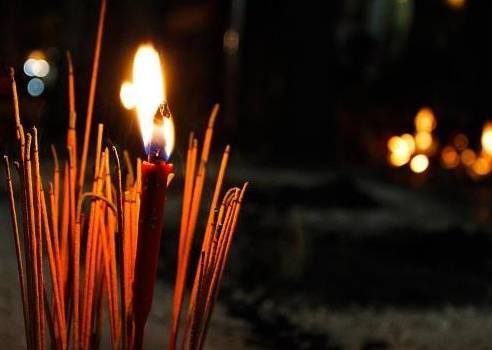
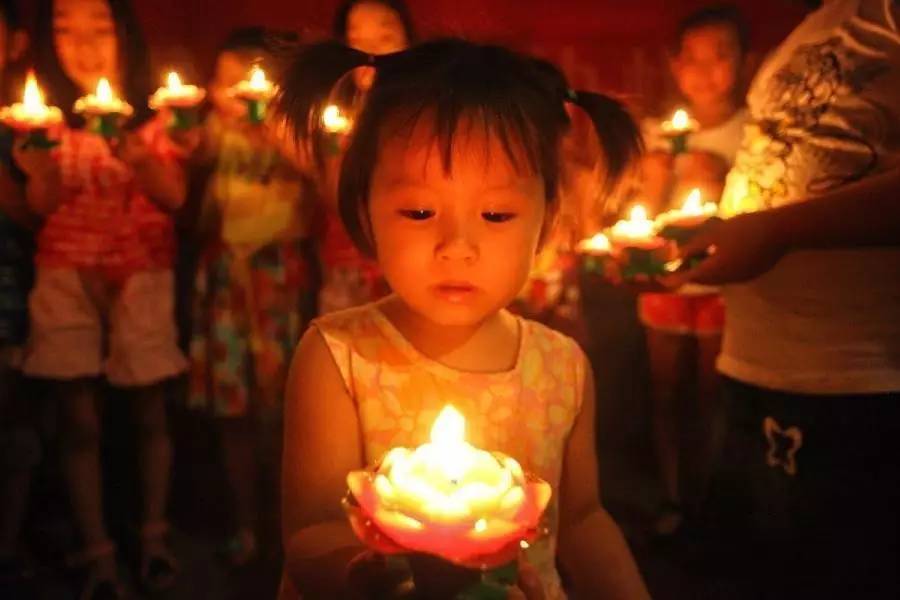
清《帝京岁时纪胜》中记载:“中元祭扫,尤胜清明。”可见,在中国古代,中元节曾远比“清明”要热闹的多。很多地方,会在这一天举行中元法会、拜三关、盂兰盆会,同时还会有放河灯、点莲花灯、送面羊等传统民俗活动。热闹与祥和中透露着淡淡的哀思,是对逝去先人们的无限追念。
It’s reported in the Bits of Imperial City of Qing Dynasty that tomb-sweeping in Hungry Ghost Festival is even busier than on Tomb-sweeping Day. Besides, many places will hold traditional activities like dharma assemble, palace-worshipping, the Ullambana, river laterns floating, flour sheep exchanging, etc. This noisy and harmonious atmosphere conveys melancholy for the departed ancestors.
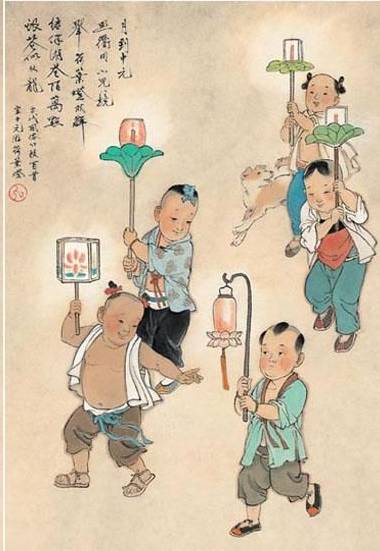
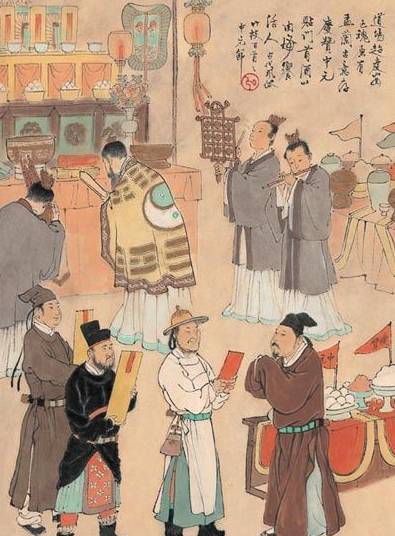
按照道教的说法,由于阴间地官要过生日,于是便在农历七月十五大赦孤魂野鬼。人间为了免受阴魂干扰,便在这天设“中元普渡”,供奉食品,焚烧冥纸,点亮法船,希望让孤魂野鬼得到超度,解脱他们的罪孽和痛苦。中元节还有许多独特的民俗传统,这些传统不仅吸引了外出务工者们返乡省亲,同时也吸引着越来越多的中外游客慕名前来。
According to the Taoism, the captain of the hell are going to celebrate his birthday, so the ghosts are released on that day. The people on the earth want to be free of the disturbance by the ghosts so they worship with good foods and burn paper money to appease those ghosts, wishing them being released from those sins and pains. There are also many particular traditional customs that not only attracted the migrant workers but also people from all over the world.
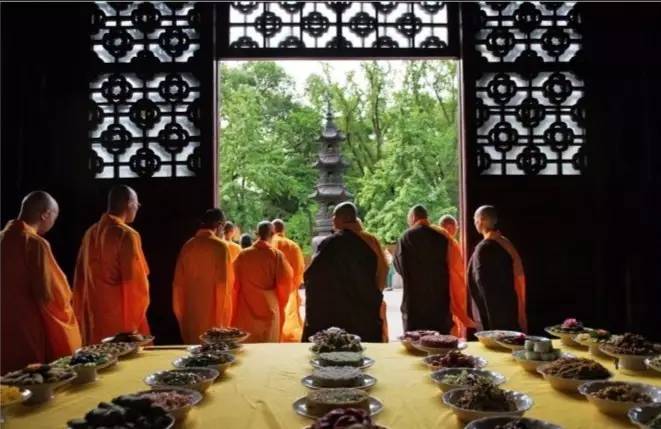
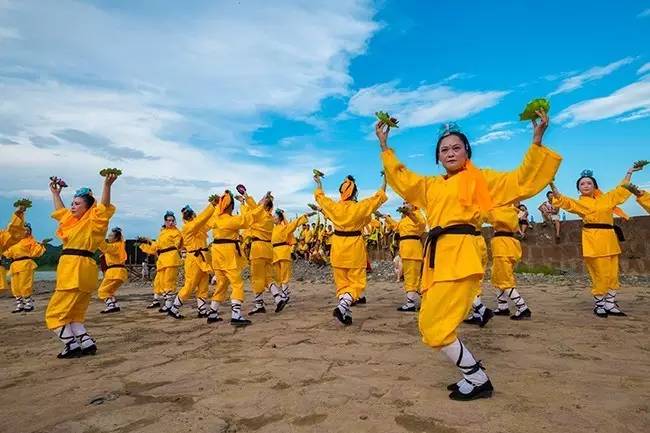
在我国华北地区,流传着一个舅舅给外甥送活羊的习俗。据说,这一风俗源自中国神话传说沉香救母。传说,沉香劈山救母后,原本要追杀虐待其母的舅舅二郎神,二郎神为了重修兄妹之好与舅甥之谊,便在每年的农历七月十五给沉香送去一对活羊,取自二郎神与沉香之母“杨”姓的谐音,寓意重修两家之好。自此,民间就流传下来舅舅给外甥送羊的习俗,传承至今,逐渐演变成送一对面羊。
In North China there is a custom that the nephew has to send living sheep to his uncle. It’s said that this custom is from a legendary story which tells that a boy saved his mother by splitting the mountain. Erlang Shen, his uncle, who was going to kill his mother, wanted to restore their relationship so he sent a pair of living sheep on the Lunar July to his nephew. So this practice passes to now but evolves to send a pair of flour sheep.
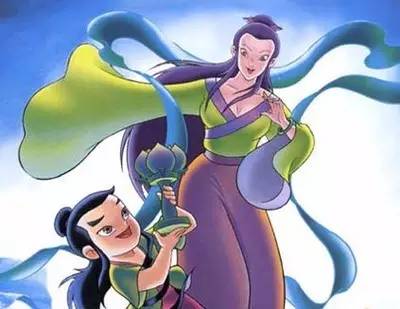

面羊对于现代人来说,或许不算是一道美味,但是却传达了一份亲情,一份温馨。就如同中国众多的民间习俗一样,都包含着中华民族的传统美德——孝道。百善孝为先,孝是善心、良心和爱心的最好体现,无论是对健在的长辈,还是已逝的先人,不忘根本,传承孝道,这才是中元节,流传至今真正的意义。
For the mordern people, it may not be a tasty dish, but it’s a way of expressing family ties and warmth. Just like all the other customs which includes the traditional morals——filial piety. “Hundred good filial first”, filial piety is a great representation of one’s kindly soul. No matter for the healthy senior family members or the departed ancestors, to spread the moral is the core and real meaning of the Hungry Ghost Festival.

撰稿:文小样
译者:尚小桦



评论